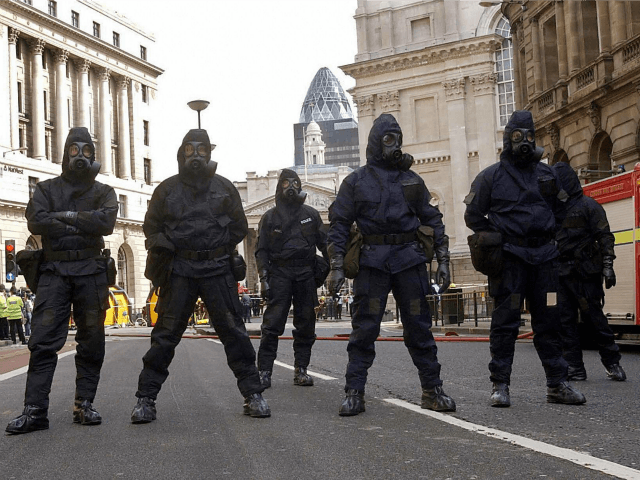Analysis of terrorism arrests in Britain carried out in the last two years shows the towns and cities that form the UK’s terror hotspots, and a sharp increase in the number of women detained for terrorist offences.
Data from across Britain shows that terrorism arrests occurred in 21 police force areas. However, analysis conducted by Sky News shows the incidence of jihad-related criminality are not evenly spread throughout the country and the location of concentrations has shifted over the past year.
Predictably, most arrests under the Terrorism Act 2000 were made in the largest population centres. In 2014, for example, by far the largest number of terror arrests were within the London’s Metropolitan police area; the second largest cluster was in the West Midlands, followed by Greater Manchester, then West Yorkshire.
Analysis of the same data a year later gives a slightly different picture. Most arrests still took place within London’s Met police area, but with a drop from 59 to 35 – a noticeable shift to fewer arrests in the capital is discernible.
In contrast, more arrests took place in the West Midlands and Greater Manchester. The former rose from 12 to 23, and the latter from nine to 11.
In terms of specific cities, in the last 18 months London accounted for 80 arrests, or about 40 per cent of the total number of terrorism arrests. Other significant clusters occurred in Birmingham (24 per cent), and Manchester (12 per cent).
Beyond those areas there were some groupings in less obvious locations. Sky News found clusters in Rochdale, Cardiff, Luton, Derby and Portsmouth, but most of those were linked to individuals aspiring to join Islamic State jihadists in Syria.
Analysis of the number of suspected female jihadists presents a statistically significant increase in 2015 (up to October) as compared to 2014. Last year’s Home Office figures showed 30 women were arrested out of a total of 289 — or just under 10 per cent of the total. With the data available for this year that same statistic has jumped to just over 23 per cent, and is expected to increase further still when data for the last quarter is made available.
However, the number of arrests does not present an accurate analysis of the full extent of jihadi activity in the UK. The picture is obscured because not only will there be individuals who have not been detected, but also most of those who are arrested under the Terrorism Act are never actually charged with terrorism, let alone prosecuted.
In 2014 only 102 of the 289 terror-related arrests resulted in charges for a terrorism-related offence. At 35 per cent of total arrests that represents an arrest-to-charge ratio substantially lower than the 58 per cent charge rate for all criminal offences.

COMMENTS
Please let us know if you're having issues with commenting.